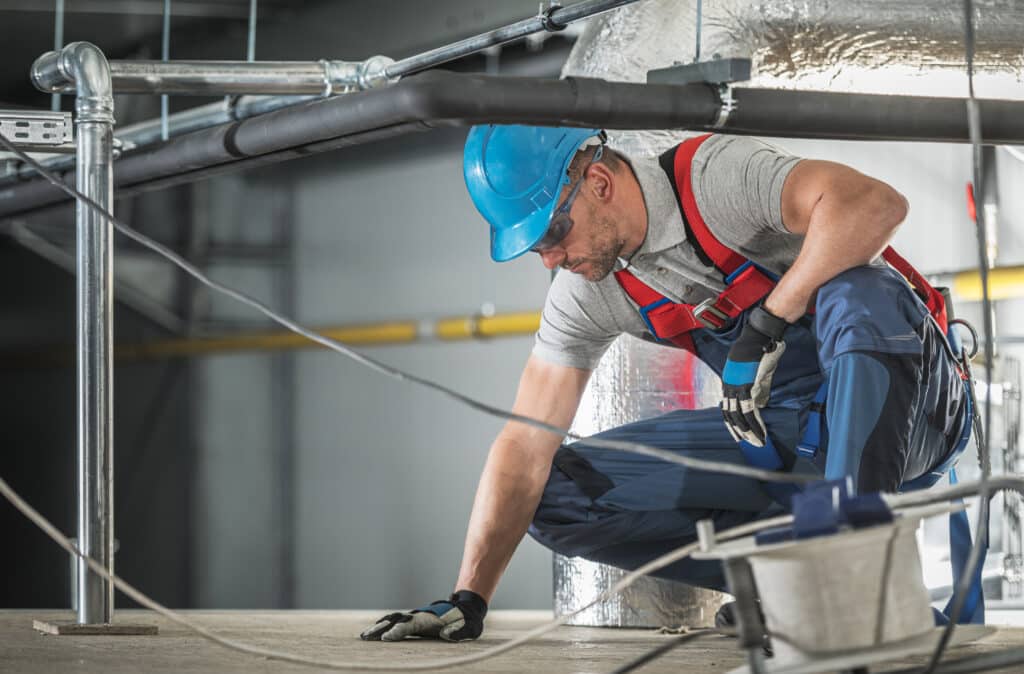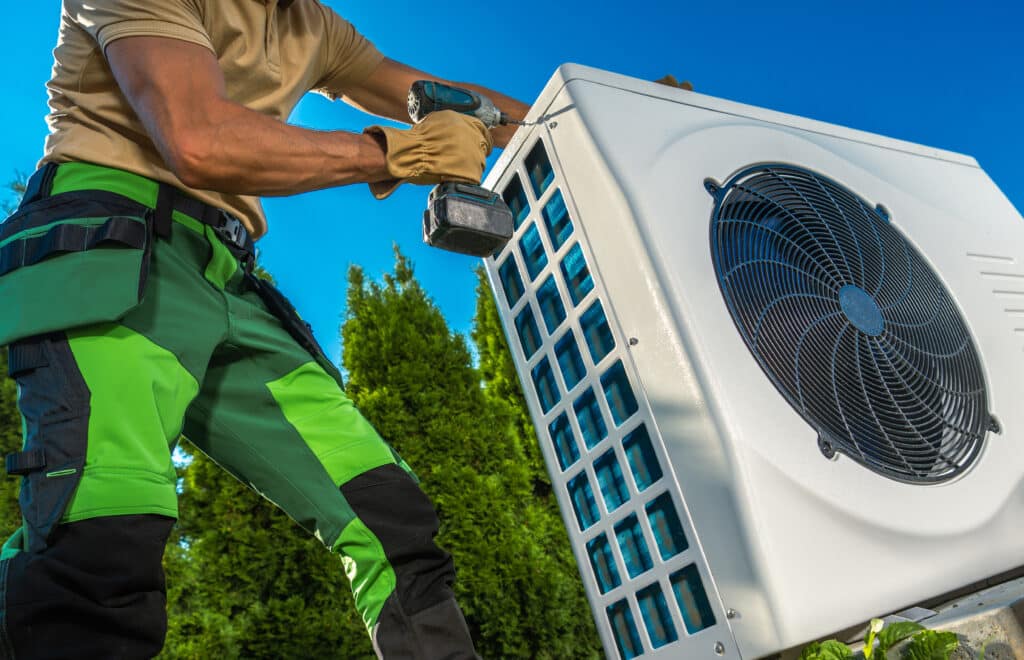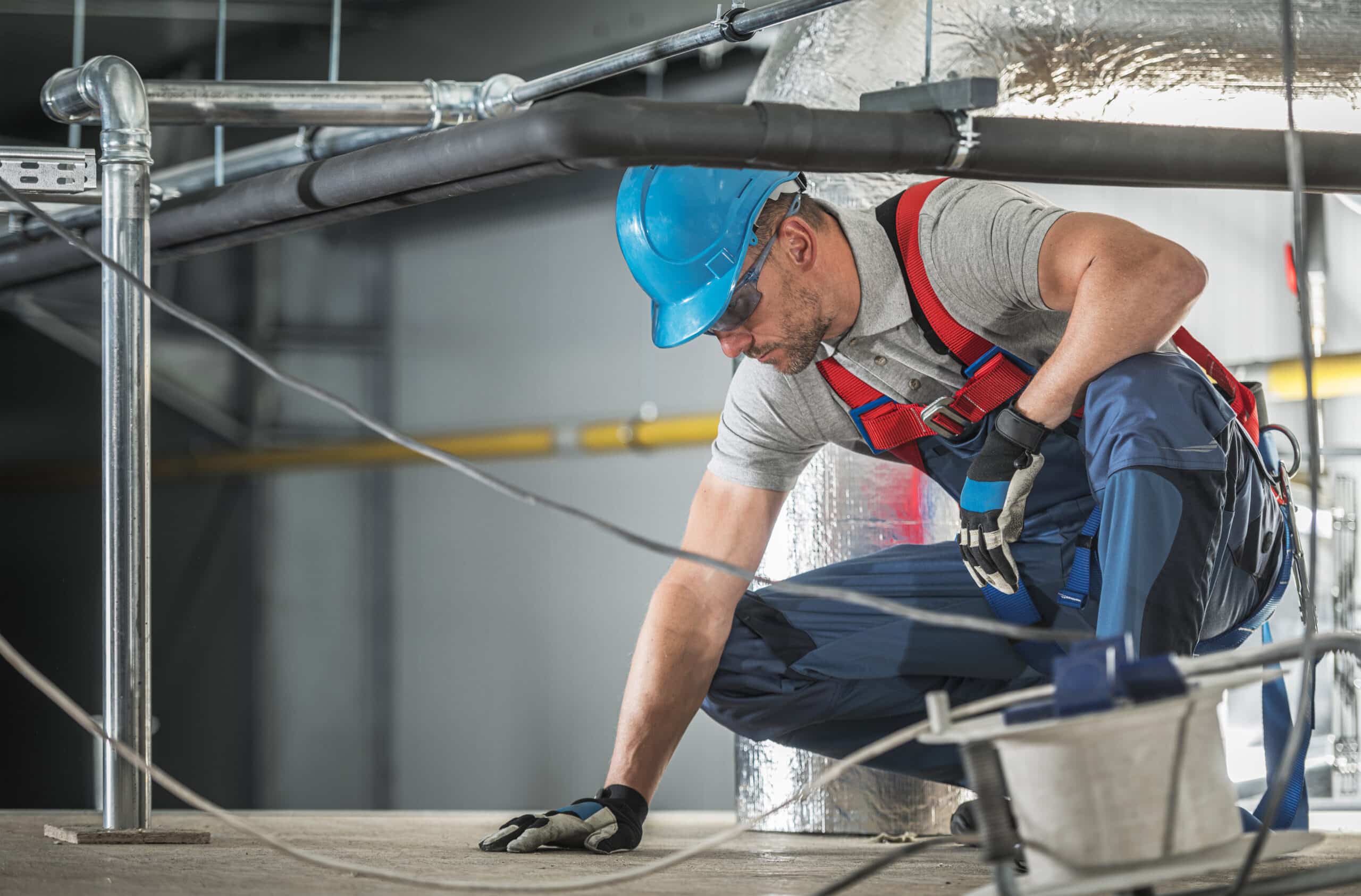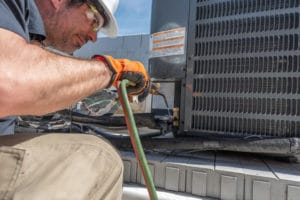HVAC stands for Heating, Ventilation, and Air Conditioning, and HVAC technicians help customers in repairing, fixing, and replacing different types of systems and appliances.
If you’re inclined to pursue a career in this field, you would want to know more about it. Maybe you want to know more about the top certifications and how you can get certified as an HVAC Technician.
In this article, we will be talking about the below-mentioned concepts:-
- What is an HVAC Certification
- Top Benefits of an HVAC Certification
- HVAC CERTIFICATION BOARDS & REQUIREMENTS
- HVAC Certification Vs License
- Should you get Certified
- How To Get an HVAC Certification
Read more: What is an HVAC technician?

What is an HVAC Certification?
An HVAC Certification validates that an individual is trained enough in the basics of heating, air conditioning, and ventilation. Though obtaining a certification is not required at the federal level, it’s still required by some states.
However, EPA has made its certification necessary for an individual who deals with refrigerants. If you’re working with refrigerants, you need to have the Section 608 certification issued by EPA. (More on that later)
Here are the top institutions that issue certifications for HVAC Techs –
- Environmental Protection Agency (EPA)
- North American Technical Excellence (NATE)
- ESCO Group
- Refrigeration Service Engineers Society (RSES)
- Refrigerating Engineers and Technicians Association (RETA)
Top Benefits of an HVAC Certification
There are some benefits and perks of being a Certified HVAC Technician, let us take a look at some of them:-
An advanced understanding of HVAC Systems
Certifications prove that you have an in-depth understanding of HVAC Systems, such as installation, air quality, and other tools and equipment.
On top of that, you might also feel greater job satisfaction and increase your HVAC technician salary as well.
Related read: HVAC technician job description
Eligibility for work
Some states expect you to be certified when it comes to specific roles. For example, an EPA (Section 608) certification is mandatory for HVAC Technicians who aim to work for refrigerants.
Hence, it’s always suggested to earn a certification in order to be eligible to work in some states.

Specialized Knowledge
Certifications also allow you to learn specific skills. Overall having a well-rounded background of skills can always equip you with better projects and greater earning potential.
Some special certifications are mentioned below:-
- Heat pumps
- Preventative maintenance
- R410-A refrigerants
- Carbon monoxide safety
- Green Awareness
- Hydrocarbon refrigerants
- Duct and envelope testing
- Indoor air quality
- Solar heating
Employment Opportunities
Undoubtedly, certifications help you become eligible for better employment opportunities within this industry.
Being certified makes you stand apart from the crowd and grab great projects from clients across the country. It can also help you win your client’s trust easily.
Getting Large Scale Projects
Certifications might also help you land large-scale projects.
It’s recommended to consider certifications when thinking about working with commercial heating and cooling systems.
High earning potential
You always get the advantage of earning a higher income when certified, as compared to non-certified candidates.
It may also help you get promotions and appraisals during the job if you are certified in a particular course or skill.
HVAC Certification Boards and Requirements
Each authority has its own rules. For instance, for some certifications, students may be required to have completed a training course, while for others, working experience provides sufficient knowledge to pass an exam.
Some certifications might have a written test, while some might require a hands-on demonstration of skills.
Here are Some common organizations that issue certifications are as follows:
AMERICAN SOCIETY OF HEATING, REFRIGERATING, AND AIR-CONDITIONING ENGINEERS (ASHRAE)
ASHRAE offers seven certifications as of March 2022, as follows:
- BCxP – Building Commissioning Professional Certification
- BEAP – Building Energy Assessment Professional Certification
- BEMP – Building Energy Modeling Professional Certification
- CHD – Certified HVAC Designer
- HBDP – High-Performance Building Design Professional Certification
- HFDP – Healthcare Facility Design Professional Certification
- OPMP – Operations and Performance Management Professional Certification
HVAC Excellence
There are several certifications for both students and high school students as well, let’s have a look at them below:-
- For High School Students- Students who are enrolled in HVAC programs at high schools can earn two certifications: technology for heating, electrical, and air conditioning (H.E.A.T.) and H.E.A.T. Plus.
The first is a 100-question test that measures the students’ familiarity with common HVAC topics like electrical theory, fundamental motors and capacitors, and AC troubleshooting. - Employment Ready Certifications- Other HVAC Excellence offerings are ideal for students enrolled in vocational programs or trade schools and include employment-ready certifications for entry-level employees.
An exam ranging from 50 to 100 questions is required for each topic. - Specialty Certifications- Additionally, HVAC Excellence offers specialty certifications that demonstrate a candidate’s proficiency in highly specialized areas like R-410A refrigerant system use, residential heat load analysis, and environmental awareness.
- Professional Technician Certifications- Moreover, HVAC Excellence gives moderate proficient level professional certifications to those with around two years of verified work experience in a particular field (e.g., heat pump service, combustion analysis, residential air conditioning).
These certifications all require a test. Master specialist hands-on technician certifications require at least three years of verified work and a demonstration of skills for those with even more experience. (Also see: HVAC service technician) - Educators Credentials- Lastly, there are various educator credentials, such as the certified subject matter educator (CSME) for HVAC instructors, which demonstrates a field professional’s ability to instruct in a variety of subject areas, including oil heat, heat pumps, air conditioning, and others.
Because it requires passing six CSME subject exams with a score of at least 80% and completing a capstone project, the certified master HVAC-R educator (CMHE) credential is ideal for multi-area specialists who want to teach.

EPA Certification
Those who work with refrigeration systems or refrigerants are required by the EPA to obtain a Section 608 certification, as previously stated. There are three types:
- Type I certifications for small appliances.
- Type II for appliances with high pressures.
- Type III for appliances with low pressure.
NORTH AMERICAN TECHNICIAN EXCELLENCE (NATE) & INDUSTRY COMPETENCY EXAMS (ICE) EXAMS
North American Professional Greatness (NATE) offers an extensive variety of specialty confirmations at different levels.
To become certified by NATE, prospective HVAC technicians must pass a core exam and a specialty exam. The specialty tests are partitioned into installation and service:
- Specialties in the installation: Air conditioning, air distribution, heat pumps (air-to-air), and gas heating are the five installation specialties.
- Service Specialties: Air conditioning, air distribution, oil heating (air), gas heating (air), heat pump (air-to-air), Hydronics gas, Hydronics oil, commercial refrigeration, light commercial refrigeration, and senior-level efficiency analyst are among the various service specialties, many of which are offered in Spanish.
NATE also provides certifications for ground source heat pump installers and HVAC performance verifiers, Section 608 certification, and the industry competency exams (ICE), which cover a variety of residential and commercial HVAC systems and related skills.
REFRIGERATING ENGINEERS AND TECHNICIANS ASSOCIATION (RETA)
Industrial refrigeration technicians can earn a variety of certifications through the Refrigerating Engineers and Technicians Association (RETA).
HVAC Certification Vs License
In the HVAC industry, the terms “certification” and “licensing” are frequently used interchangeably. However, it is essential to know the difference between the two.
HVAC Certifications are mostly voluntary, such as NATE, which exhibits your ability in the field.
HVAC technician license, on the other hand, then again, are issued by the state or city you intend to work in. Most licenses are issued by the state or city for HVAC Contractors.
Should You Get Certified?
You will most likely need to obtain your EPA 608 certification if you intend to work as an HVAC technician.
In case you are signed up for an HVAC Technician apprenticeship program and you are managed by a certified technician, you might be excluded from the EPA 608 certification requirement.
While NATE and HVAC Excellence certifications are optional, they can help you advance in your HVAC career by demonstrating to employers that you are competent and committed to learning the trade.

How To Get an HVAC Certification
There are a few steps to get HVAC Certified:-
- Earning a high school degree or GED
HVAC training programs typically require a high school diploma or GED. Courses in computer science, physics, and environmental science can all help you prepare for a career in heating and cooling.
Some colleges have programs for high school students to earn industry credentials, and some high schools provide vocational training.
- Participating in HVAC training
One way of getting certified as an HVAC technician is to complete HVAC Training.
Online HVAC training programs are recommended. Online HVAC Programs are accessible and affordable, and most importantly, they can be finished in as little as 6 to 12 months.
Make sure your training provides a strong foundation in HVAC Tech and prepares you for entry-level certifications. (Mentioned Below)
Also read: Online HVAC training
- Earning a State License
It is important to know that there exists a difference between a certificate and a license.
It’s crucial to be aware of the appropriate licenses that are required in any state or city. You can research your area’s licensing guidelines before you start working.
- Get experience
There are many certifications that expect candidates to have field experience for a minimum of 1 to 2 years. For instance, HVAC excellence certification requires 2 years of work experience.
If you still haven’t worked in an on-field role, target entry-level roles as a technician.
- Select a certification
Pick a certification program that suits your expectations with respect to fees, affordability, accessibility, timeline, etc.
Certifications offered by organizations vary on different levels, such as experience and other related factors.
If you’re just starting out, you can go for the entry level certification. Here are two of the most popular entry-level certs for HVAC Techs –
- Section 608 Certification
- NATE Ready-to-Work Certificate
- Take tests
Post applying for you certification you have to sit for your exams.
Once you clear the exams, you’ll be a certified HVAC Technician.
- Update your certifications
Make sure your certifications are renewed on time. For example, there is no expiry date for Sec 608 certification by EPA. Whereas the HVAC Excellence lasts for 5 years and the one offered by NATE extends to only two years. You must make sure all your certifications are updated and renewed.





